




 |
   |
 |
|
Tractor Traffic Train |
Tranquility Trans Am Tranzam |
Travis Jack Traylor & Steelwind Treble Charger |
Tremeloes Michael B. Tretow Trettioåriga Kriget |
Trace (Netherlands) see: |
 |
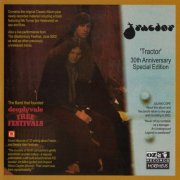 |
Tractor: 30th Anniversary Special Edition (1972/2002, 40.43/63.52) ****/0 (T) |
|
| All Ends Up Little Girl in Yellow The Watcher Ravenscroft's 13 Bar Boogie Shubunkin Hope in Favour Everytime it Happens Make the Journey |
[30th Anniversary ed. adds: Siderial No More Lies Mr. Evolution Man Every Time it Happens The Storm The Watcher] |
|
Current availability:
Mellotron used:
Tractor are pretty much yer original DIY outfit, recording their two albums (the first as The Way We Live) in their home studio in Rochdale, near Manchester; the sainted John Peel fell in love with the duo's decade-early indie aesthetic, funding their home studio and releasing both albums on his own Dandelion imprint. So how does Tractor hold up, almost half a century later? It's a raw, uncompromising, psych-into-hard-rock album, highlights including insistent earworm opener All Ends Up, acoustic psych-fest Everytime It Happens and mad, nine-minute closer Make The Journey, while Ravenscroft's 13 Bar Boogie (guess what: it isn't) is their paean to Peel, referencing his real name.
Mellotron? Nothing on the original album, as you can see, but 2002's 30th Anniversary Special Edition adds half a dozen bonus tracks (irritatingly different from earlier CD issue bonuses), including uncredited, obviously real Mellotron on one of the more contemporary ones, No More Lies, with a string part snaking in and out of the mix, although I've no idea where they sourced a machine. Not only are there several Tractor albums from the '90s on, featuring both old and new material, but these lunatics have even released a brand new record this year (2020), Shubunkin Over Rochdale College Bank. I haven't heard it, but fully expect another piece of low-fi is it?/isn't it? genius, in their own, inimitable style. Allow me to quote from Q magazine, back in '91: "Tractor - they are completely mad". Couldn't have put it better myself.
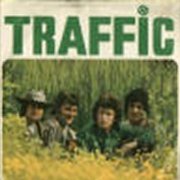 |
7" (1967) ****½/TTT Hole in My Shoe Smiling Phases |
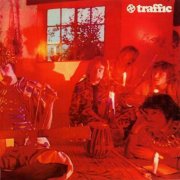 |
Mr Fantasy (1967, 34.40) ****½/TT |
|
| Heaven is in Your Mind Berkshire Poppies House for Everyone No Face, No Name, No Number Dear Mr Fantasy Dealer Utterly Simple Coloured Rain |
Hope I Never Find Me There Giving to You |
|
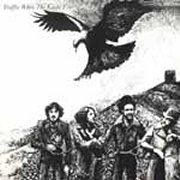 |
When the Eagle Flies (1974, 40.03) ***½/T½Something NewDream Gerrard Graveyard People Walking in the Wind Memories of a Rock n'Rolla Love When the Eagle Flies |
Current availability:
Mellotrons used:
Traffic were probably the first UK band to 'get their heads together in the country' (an obvious euphemism), with quite excellent results. They debuted with the quite brilliant Paper Sun, encapsulating 1967 in all its psychedelic glory (you can tell I wasn't there, can't you?), but their first Mellotron use was on the follow-up, the even more demented Hole In My Shoe, later tediously covered by Nigel Planer's Neil character from The Young Ones (early-'80s UK comedy show for non-Brit readers). The original is absolutely fantastic and a total period piece, right down to the nice, middle class little girl's voice saying something about giant albatrosses in the middle eight. Mellotron strings, complete with judicious pitchbend, help to make the track a complete classic.
Neither single found its way onto their first long-player, Mr Fantasy, but with the quality of material on offer, nobody noticed. Like so many other bands of the era, Traffic mixed together a plethora of influences, with the added bonus of not having a recent past in the beat boom era, at least not collectively. Although less 'psychedelic' than many contemporaneous albums, Mr Fantasy still manages a couple of lysergic outings, particularly House For Everyone, which also features the album's first Mellotronic input, with Dave Mason's stabbed brass chords under the verse, while Utterly Simple is a full-on sitar-laden psych-fest; their own Within You Without You, no less. The other really outstanding track here is the Latin-tinged Dealer, later covered by Santana, but there's very little wrong with the album, if truth be told. As far as the Mellotron's concerned, the single No Face, No Name, No Number is a deceptively gentle ballad with a haunting Mellotron string line, while Coloured Rain completes the album's trio of Mellotron tracks, with some background string chords. To my knowledge, all flute parts on the album are real, played by the now sadly late Chris Wood.
I don't believe Traffic used a Mellotron again until the tail-end of their career, on final release When the Eagle Flies, a dark album, probably reflecting the early-'70s come-down after the end of the hippy dream. I'm not personally a great fan of the music the band were making by this time, but it's all exceptionally well done, in a laid-back kind of way. Mellotron on one track only, the eleven-minute Dream Gerrard, with a string part drifting in and out of the mix over the track's considerable length.
See: Jim Capaldi
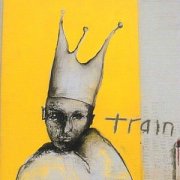 |
Train (1996, 56.31) ***/½ |
|
| Meet Virginia I am If you Leave Homesick Free Blind Eggplant Idaho |
Days Rat Swaying |
|
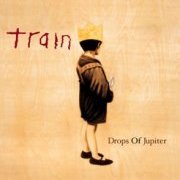 |
Drops of Jupiter (2001, 48.33) **½/½ |
|
| She's on Fire I Wish You Would Drops of Jupiter It's About You Hopeless Respect Let it Roll Something More |
Whipping Boy Getaway Mississippi |
|
Current availability:
Mellotron used:
Train's eponymous debut sounds an awful lot like Counting Crows, so it's no particular surprise to note that its keyboard parts (Hammond/piano/Mellotron) were played by that outfit's Charlie Gillingham, accentuating the vaguely alt.countryness of the proceedings. While nothing here actively offends, nor does anything especially stand out, with most of the tracks disappearing into a mush of sameness. Gillingham's Mellotron can definitely be heard on two tracks, with a polyphonic cello (?) part on opener Meet Virginia and faint flutes on Eggplant, with most of the other keyboard work being Hammond.
By Drops of Jupiter, five years on, Train had morphed into one of those inexplicably-currently popular bands, like Nickelback, who don't seem to actually have any particular sound at all, or write especially good songs, but who all look good and get plenty of record company push. You can sort of see that they were going to end up like this from listening to Train, but it's still a bit depressing. Pat Monahan's voice had picked up that awful whiny edge that so many contemporary singers seem to feel they have to have, but he must be doing something right, I suppose. I can't even pick out any tracks to comment upon, as they all blurred into one long wash of 'Rock', without being 'something-Rock' or, for that matter, 'anything-Rock'. 'Rock', but utterly bland. How did that happen? Although there's no Mellotron actually credited here, that has to be Mellotron flutes on Getaway, possibly played by drummer Scott Underwood (the only member credited with keys) but more likely to be by producer Brendan O'Brien, a noted Mellotron fan. It's, er, a passable Mellotron flute part, but you'd have to be certifiable to buy this album for that reason alone. Consider this a warning.
See: Samples etc.
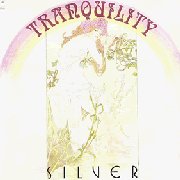 |
Silver (1972, 42.12) **½/T |
|
| Eagle Eye Can I See You Linda Whip Wheel The Driver's Engine Couldn't Possibly Be Nice and Easy Dear Oh Dear |
Silver The Tree |
|
Current availability:
Mellotron used:
Now, I can say in all honesty that I know bugger all about Tranquility; it took me long enough to ascertain that they were British. The sleeve gives the impression that the album just may have a progressive slant to it, but in all honesty, 'slant' is probably too strong a word; think typical early-'70s mainstream soft rock but marginally more interesting. Infuriatingly, there's the occasional 'almost there' moment, like the closing section of Whip Wheel or Silver itself (definitely the album's highlight), but they never last long enough to be of any real consequence. There's a country edge to some of the material and their massed harmony vocals sound like a rather low-budget CSN&Y, so don't expect anything too exciting. And what the hell's with the dodgy Donovan impersonation on closer The Tree?
Although a bit more Mellotron would probably have livened the album up slightly, keyboard player Tony Lukyn only uses it on Nice And Easy, with some almost inaudible flutes, then a genuinely good string part in an otherwise average song. In all honesty, I'd be pretty hard-pushed to particularly recommend this album, although there are a few OK-ish tracks; if only they'd concentrated a little harder on not sounding so bloody wussy. Dear Oh Dear indeed.
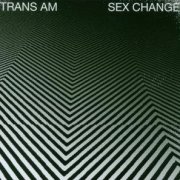 |
Sex Change (2007, 42.58) ***/½ |
|
| First Words North East Rising Sun Obscene Strategies Conspiracy of the Gods Exit Management Solution Climbing Up the Ladder 4738 Regrets Reprieve |
Tesco Vs Sainsbury's Shining Path Triangular Pyramid |
|
Current availability:
Mellotron used:
The Fucking Champs-associated Trans Am play a kind of ironic/non-ironic synth metal with krautrock overtones, their eighth album, Sex Change, apparently being a return to form after a couple of unsuccessful diversions. It shifts between sort-of synth-pop (First Words, North East Rising Sun, most of the rest) and something nearer Champs territory (Conspiracy Of The Gods, Shining Path), with the odd sidetrack here and there. 'Best tracks' are entirely a matter of taste, I feel; I like Shining Path and the synth-heavy Tesco Vs Sainsbury's (have they visited the UK lately?), but their fanbase may prefer the lighter material.
The album was recorded in Auckland and the band borrowed some vintage gear while in NZ, including Tall Dwarfs' Chris Knox's M400, although it's only at all obvious on one track, with rather background strings on the superbly-titled Conspiracy Of The Gods, played by an unknown (Knox, maybe?), that could almost be something generic. Anyway, an interesting album, if not one I'll be returning to that often. Incidentally, they used samplotron on on of their Champs collaborations (below), TransChamps.
See: Fucking Champs | Fucking Am | TransChamps
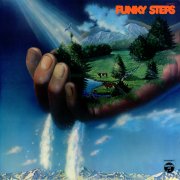 |
Funky Steps (1974, 35.23) ***½/TT½Dance Ritual of Fire From Love, the MagicianLargo From Mandolin Concerto Dream of Love Morning From Peer Gynt Suite No. 1 Andante From Pathetic Symphony Moderato From Piano Concerto No. 2 |
Current availability:
Mellotron used:
Tranzam were, according to Discogs, a 'Japanese rock/pop band', including ex-members of The Flower Travelin' Band and the Sadistic Mika Band, amongst other, lesser-known names. Their debut, 1974's Funky Steps, is less the jazz-funk horror you might expect, more a jazz/classical/prog (!) mashup, six classical pieces reinvented for rock band and brass section, composers tackled including Vivaldi (Largo From Mandolin Concerto), Grieg (Morning From Peer Gynt Suite No. 1), Tchaikovsky (Andante From Pathetic Symphony) and Rachmaninov (Moderato From Piano Concerto No. 2). To my great surprise, the material largely survives its reworking, highlights probably being the Grieg and Tchaikovsky pieces, although classical buffs may need a strong stomach to cope with the jazz and funk elements utilised here.
Keys man Nobuhiko Shinohara adds Mellotron to most tracks, with volume-pedalled strings notes and chords, including a wicked pitchbend, throughout opener Dance Ritual Of Fire From Love, The Magician (20th Century Spanish composer Manuel de Falla), more strings on Dream Of Love and Morning From Peer Gynt Suite No. 1 and choirs on Moderato From Piano Concerto No. 2. You're not all going to like this, but, given that it's never been reissued and is on YouTube, there's nothing to stop you listening to it yourself.
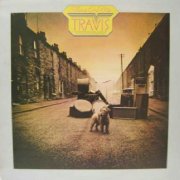 |
Shine on Me (1972, 35.18) ***/T½Shine on MeGoodbye Flagstone Path Maybe I Wrote This Song for You Found Myself in You Time's Running Out Carry Me With You |
Current availability:
Mellotron used:
Travis (not to be confused with the current Scots miserablists), were an early-'70s UK outfit, vaguely akin to Wishbone Ash, concentrating on slightly hard rock with plenty of vocal and guitar harmony. I'm told that they morphed into Strange Days, who released the rated 9 Parts to the Wind in '75, although there's no Mellotron on that album. Travis are quite insipid in places, I'm afraid, although some of the material on Shine on Me isn't bad, particularly the guitar-driven Flagstone Path and the very Blowin' Free-like Maybe I Wrote This Song For You.
Keys man Christos Demetriou plays Mellotron on a couple of tracks, with largish helpings of strings on Found Myself In You, a typical ballad, while Carry Me With You has a few chords on the fadeout. All in all, given the record's rarity, I wouldn't spend a fortune, unless you're a Mellotron nut in the unlikely position of having money to burn. Average.
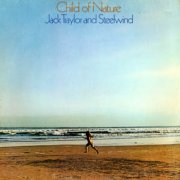 |
Child of Nature (1973, 38.34) **½/½Child of NatureBirds and Beasts and Bumblebees I've Got You Smile Time to Be Happy Come on, Children Fifteen Years After Gone to Canada Caveat Emptor |
Current availability:
Mellotron used:
Jack Traylor was a Grateful Dead/Jefferson Airplane associate who contributed towards Kantner, Slick & Freiberg's Baron Von Tollbooth & the Chrome Nun, various members of the collective returning the favour by playing on his 1973 solo album, Child of Nature, credited to Jack Traylor & Steelwind. As you'd expect, it's a fairly drippy folky effort, like a weak-arse Airplane, although the ensemble manages to summon up some life on Gone To Canada.
Airplane associate David Freiberg plays what I presume is that band's M400, with a string part on I've Got You, although all the album's flute parts are real, played by Skip Morairty. This is once again available, from Traylor's website, but I think I can only really recommend it to Airplane family completists, although it has its moments. As for the Mellotron, as with his other work, Freiberg's playing on the album is too background to be of any real consequence.
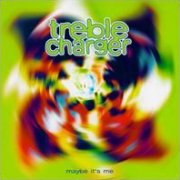 |
Maybe it's Me (1997, 49.52) ***/T |
|
| Friend of Mine How She Died Stupid Thing to Say Kareen Red Fade Ever She Flows Forever Knowing |
Mercury Smile Christ is on the Lawn Scatterbrain Takes Me Down Left Feeling Odd |
|
Current availability:
Mellotron used:
On the evidence of their third album, Maybe it's Me, Canada's Treble Charger veer between pop-punk and powerpop, utilising elements of both, frequently in the same song. The end result is definitely aimed more at the young than the not-so-young, but isn't that how rock should be? The album's quieter songs tend to make more impact, to be honest, with both Red and Christ Is On The Lawn standing out from the pack, although it's noticeable how the album's better tracks are let down by whiny drivel like Ever She Flows. It's also noticeable how most of the album's tracks are too long; there's nothing here under three minutes (or over five, conversely) and many of them outstay their welcome by a minute or more, making the album overlong as a knock-on effect.
There's no cellist credited (although the brass section is), but I suspect the cellos on Red and Ever She Flows are real, making the album's only Mellotron track Christ Is On The Lawn, with a lovely (and obviously real) flute'n'strings part from guitarist Bill Priddle, nicely enhancing what might otherwise be a rather workaday ballad. Albums like Maybe it's Me depress me a little, as they indicate that the artists concerned have only listened to the musical generation immediately before their own, which if carried to its logical conclusion would culminate in a situation where everybody just ran round in circles, biting each other's tails. Oh, you mean we're already there? I'm being a bit unfair in this case, as the album has its moments, but the 'indie' vocals are bound to irritate those who haven't grown up with them. One good Mellotron track, though, so we'll let 'em off. Maybe. p.s. Horrible sleeve design.
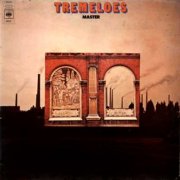 |
Master (1970, 38.37/79.32) ***/TT½ |
||
| Wait on Me Long Road Now's the Time Try Me But Then I Before I Sleep Boola Boola I Swear Baby |
By the Way Willow Tree Me and My Life [The Early 70's Sessions adds: (Call Me) Number One (new stereo mix) Instant Whip Breakheart Motel Right Wheel, Left Hammer, Sham (new stereo mix) |
Take it Easy Hello Buddy My Woman What Can I Do Anything Wait for Me Wait a Minute Yellow River (demo)] |
|
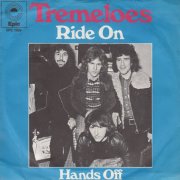 |
7" (1973) **½/½ Ride on Hands Off |
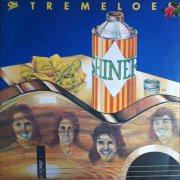 |
Shiner (1974, 36.04) **½/T |
|
| One of the Boys My Friend Delaney Sad Goodbye I Want it Easy September, November, December Hard Woman Lonely Dolly Big Bad Boogie |
Love Song Help |
|
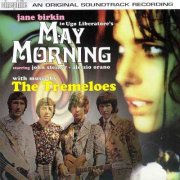 |
May Morning (2000, recorded 1970, 35.30) ***/TTT½ |
|
| May Morning All Pull Together Till the Sun Goes Down Turn on With Thee I Can't Even Breathe Down There May Morning (Reprise 1) Anything Think of What You Said |
Beer Duel Hard Time I'll Take You Home Bunch of Rapes May Morning (Reprise 2) I Know You |
|
Current availability:
Mellotrons used:
After several years of mainstream pop hits with and without vocalist Brian Poole (Silence Is Golden, Here Comes My Baby), The Tremeloes found themselves rather adrift by the end of the '60s, seen as seriously old hat by the counterculture, something they clearly found difficult to wholly embrace. 1970's Master was their attempt to bridge the gap, shifting between relatively contemporary stuff (opener Wait On Me, Try Me, Boola Boola) and mainstreamish fare (But Then I, Willow Tree), but what's with the Elvis impersonation on Baby? Bizarre. Anyway, the band bought Jeff Lynne's MkII from his Idle Race days, utilising it on a few tracks (probably played by Len "Chip, father of Chesney" Hawkes), with strings and flutes (and brass?) on Now's The Time, sustained strings (bit of studio trickery here) and vibes on But Then I, strings on Boola Boola and flutes and strings on By The Way, making this semi-worthwhile on the Mellotron front. An expanded CD version, Master...Plus!: The Early 70's Sessions, adds a slew of mostly 'yeah, whatever' tracks, with Mellotron vibes on What Can I Do.
1973's cod-glam non-album Ride On 7" has occasional pitchbent strings and underpinning cello, paving the way for their first album in four years, the following year's Shiner, complete with cheapo early '70s pop LP sleeve art. Like Ride On, it's a kind-of cod-glam effort, not unlike the kind of stuff other washed-up '60s stars were churning out at the time (see: The Hollies). Any better tracks? Not really, no, although Hard Woman at least manages a little rock'n'roll credibility, while Big Bad Boogie goes full glam, complete with handclaps, leaving Love Song as the nearest this album gets to 'exploratory'. Mellotron? Uncredited, although Hawkes seems the most likely culprit, with a brief flute part in the bridge of Love Song, repeating once. The strings on Sad Goodbye are—not sure, to be honest, but almost certainly not a Mellotron, while the supporting keyboard sound on September, November, December could be Mellotron flutes, but probably isn't.
Hopping back to 1970, Italian director Ugo Liberatore dug the band out of a bit of a hole after Master by signing them up to soundtrack his cult film May Morning, not officially released for another thirty years, although various tracks leaked out on compilations. With the benefit of hindsight, it can be seen as a decent transitional record, bridging the gap between their pop work and the light end of early '70s rock (think: solo Rod Stewart), although quite a bit of ground is covered across its fourteen tracks. Although most of the material is on the acoustic side, Anything has echoes of The Who about it, while Hard Time has a distinct early Floyd vibe and several tracks feature a sitar somewhere in the mix. More of that ex-Lynne Mellotron, the band using it to good effect across much of the album. Obvious use includes the strings on Turn On With Thee, Think Of What You Said and Beer Duel, plus the flutes on May Morning (Reprises 1 & 2), although top Mellotron track is probably Till The Sun Goes Down, opening with vibes and flute, adding strings to the mix further into the song. Add the almost-inaudible accordions in All Pull Together and you're left with a pretty damn' good Mellotron album from an unexpected source. Chip's MkII was last heard of on loan to a Beatles museum in Liverpool. At least they got the right model...
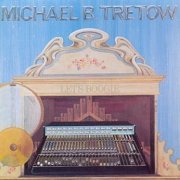 |
Let's Boogie (1976, 36.51) **/½ |
|
| Paper Dolls Robot Man Bottom Coming Up Brief Intermission Moonbeams I Can See What You Mean That's the Way the Cookie Crumbles Sandwich |
Hesitating Hanna Brief Intermission Keep Your Hands to Yourself Doc McGurgle's Babylonian Lizard Tooth Oil He Can't Sing |
|
Current availability:
Mellotron used:
Michael B. Tretow is a Swedish musician and producer, best-known for his long association with Abba, apparently 'play[ing] an essential part in creating [their] sound'. His first solo album, 1976's Let's Boogie is a pretty poor effort, frankly, even by the mainstream standards of the time, largely consisting of borderline-novelty stuff like Sandwich (sample lyric: "Make yourself a sandwich") and Doc McGurgle's Babylonian Lizard Tooth Oil.
Tretow's credited with Mellotron (presumably Abba's M400) on Paper Dolls and Doc McGurgle's Babylonian Lizard Tooth Oil, although it's difficult to tell exactly what it might be doing: faint strings on both tracks? Barely scrapes half a T, while the album's a waste of time for all but Swedish pop historians.
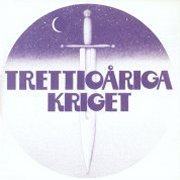 |
Trettioåriga Kriget [a.k.a. Thirty Years War] (1974, 38.24) ****/TTTKaledoniska OrogenesenRöster Från Minus Till Plus Fjärilsattityder Mina Löjen Ur Djupen Handlingens Skugga |
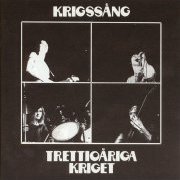 |
Krigssång [a.k.a. Warsong] (1976, 38.30) ****/TTTKrigssångMetamorfoser Jag Och Jag Och 'Jag' Mitt Mirakel Murar Krigssång II |
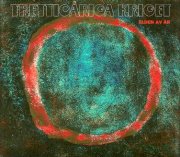 |
Elden av År (2004, 49.05) ****/TT½LjusetNightflight Lång Historia Elden av År Elden av År Möte Molnbudet Nightflight - 77 Gnistor |
Current availability:
Mellotrons used:
Trettioåriga Kriget, or Thirty Years War, are a bit of an oddity; driving, high octane jazz-inflected hard rock with a progressive edge and Swedish vocals. What could be an appalling mish-mash of influences is actually a rather wonderful mixture of genres; TK had a unique sound that still stands up well today. Trettioåriga Kriget manages to combine several different approaches into a cohesive whole and should appeal to the hard rock crowd as well as the progressive fraternity. The band didn't use Mellotron live, unsurprisingly, as it was played in the studio by drummer Dag Lundquist; used sparingly but effectively, it often bursts in after several minutes of a song, then disappears just as quickly. Trettioåriga Kriget have been quoted as a major influence on '90s Swedish wunderkind Änglagård; listen to Mina Löjen for proof. Trettioåriga Kriget is a real grower; listening to it again for review purposes I'm struck by how good the songs actually are. It's a great shame they never found any success outside their native country, despite being signed to the Scandinavian branch of CBS; it would probably have been seen as a terrible sell-out, but some English-language lyrics may have done the trick (well, it worked for PFM).
Krigssång (War Song) was recorded in summer '75, although it wasn't released until early '76; while obviously the same band that recorded their debut, the album's a little more acoustic and maybe a tad more straightforward, too. The Mellotron work fits the same pattern as their first LP; sparse but effective. TK took their only step into larger-scale composition on this album; Krigssång II takes up the whole of side two of the original album and has the best Mellotron work on the record. TK spent five weeks in Britain in late '76, just before punk hit the headlines. Obviously mindful of the impenetrability of their lyrics to a British audience, they rewrote a few of their songs in English; On Going To England is a new version of Mina Löjen from their first album. Despite a good review in Melody Maker, the band made no further headway in the UK; presumably their albums were unavailable here and it was at the time unheard of to sell your own recordings at gigs. The live tracks added to the CD were recorded in Stockholm a few weeks later.
Trettioåriga Kriget carried on for some years, eventually changing their name to the more manageable Kriget, but they simplified their approach (haven't we heard this somewhere before?) and never attained the heights of their first two releases again. There is a compilation of outtakes and suchlike called War Memories (1972-81) (***½); while worth having, there isn't a trace of Mellotron on it anywhere.
However... having dissolved some time in the early '80s, with occasional reformations, the Kriget boys have decided to have another stab at fame and fortune, or at least making some more great music. Elden av År (Fire of Years) doesn't disappoint, with the band having lost none of their energy, although it by no means sounds like a carbon copy of their '70s style. It's difficult to pinpoint the best material after a single listen, so I may well revisit this review at a later date; suffice to say, it's about as far as you can get from the (allegedly) insipid reformation works from the likes of Epidaurus or Il Balletto di Bronzo. Mellotron from Mats Lindberg on four of the eight tracks, with intelligent and restrained use of strings and flutes; nothing jaw-dropping, but well worth hearing, as is the album as a whole. Incidentally, they used Mellotronen boss Stefan Dimle (Paatos, ex-Landberk)'s machine.
Kriget have continued releasing new albums well into the 21st Century, but have gone over to the Mellotronic dark side.
See: Samples etc.